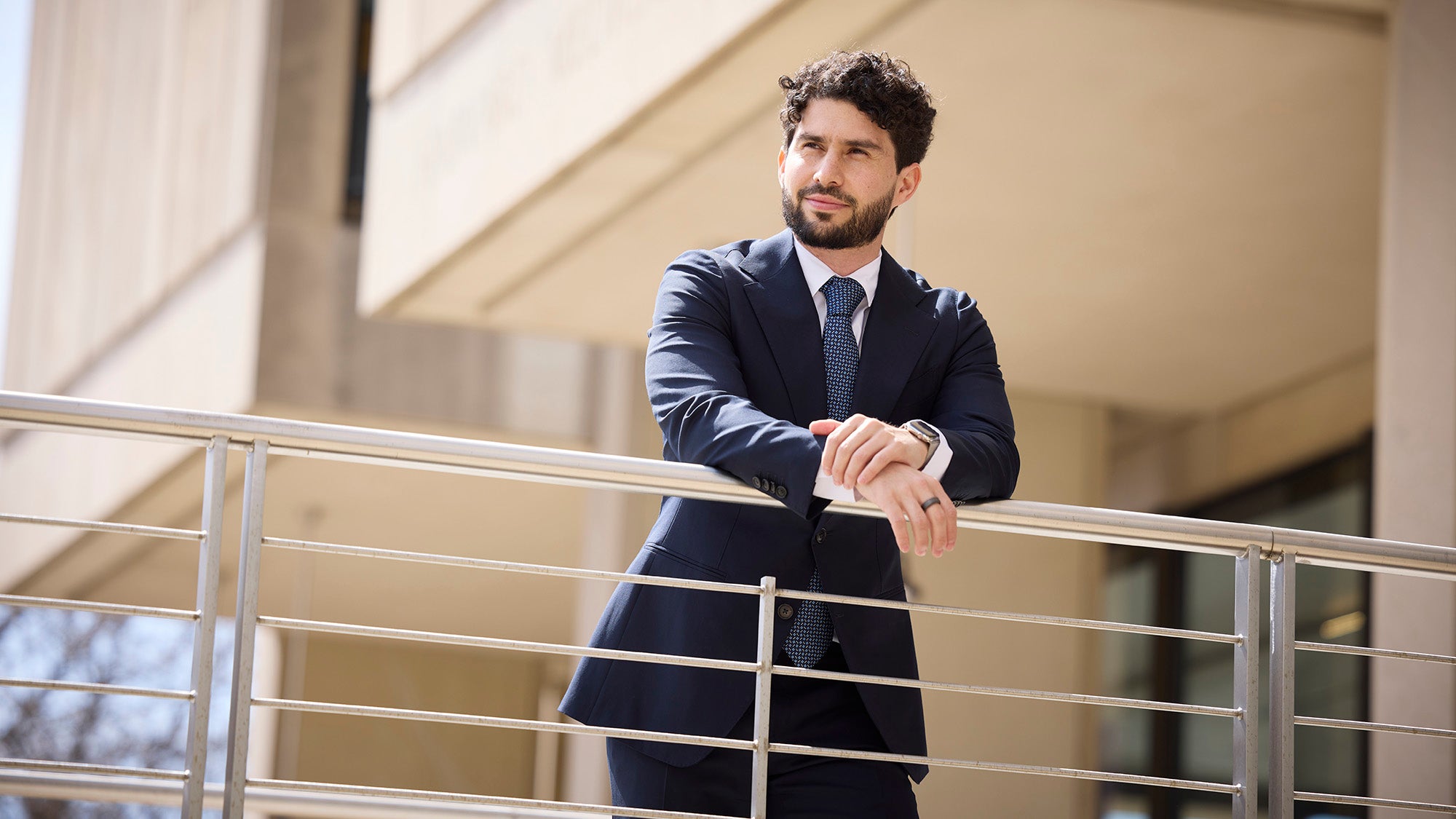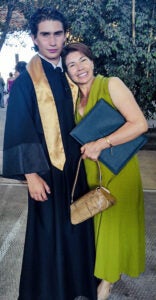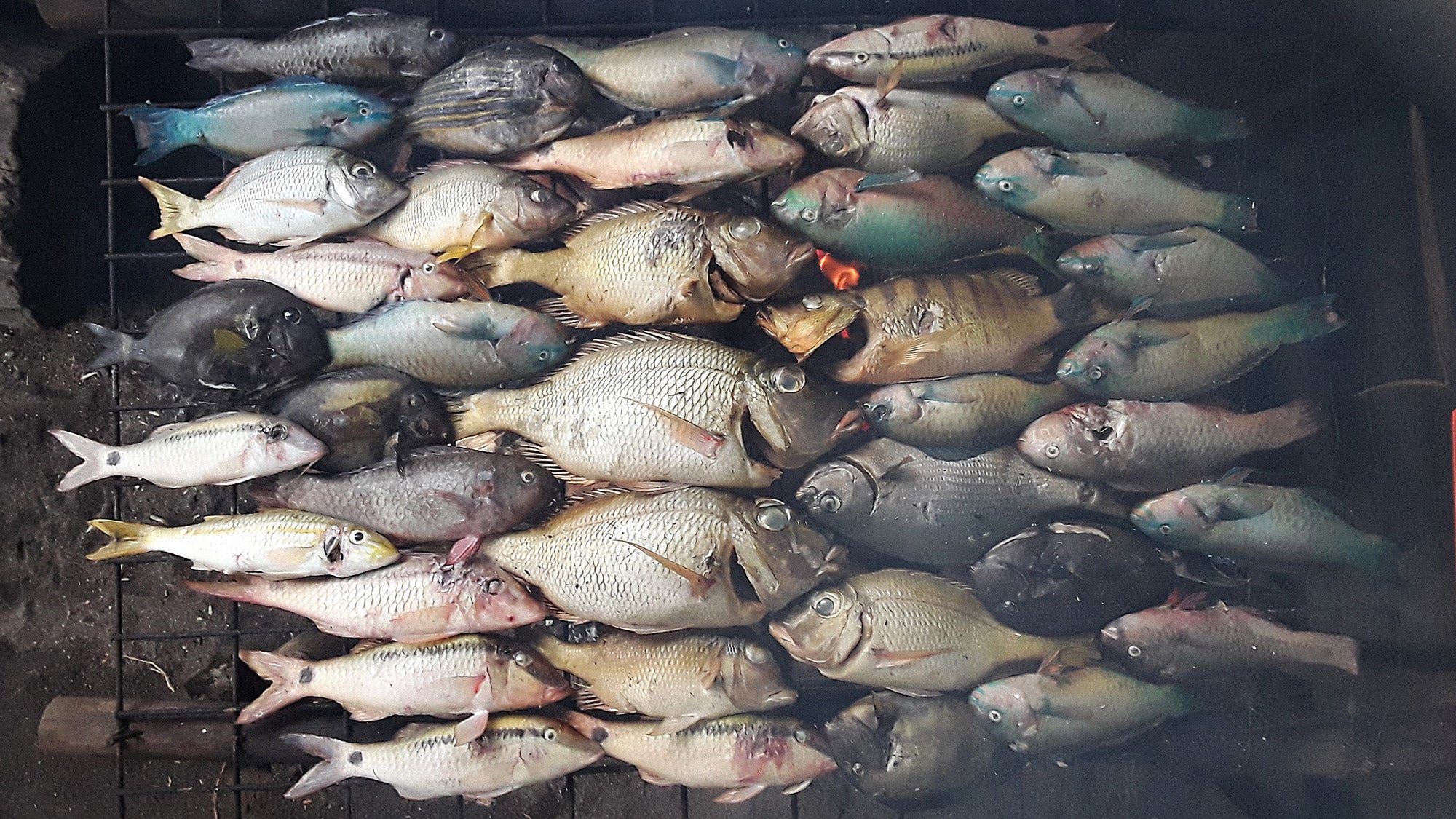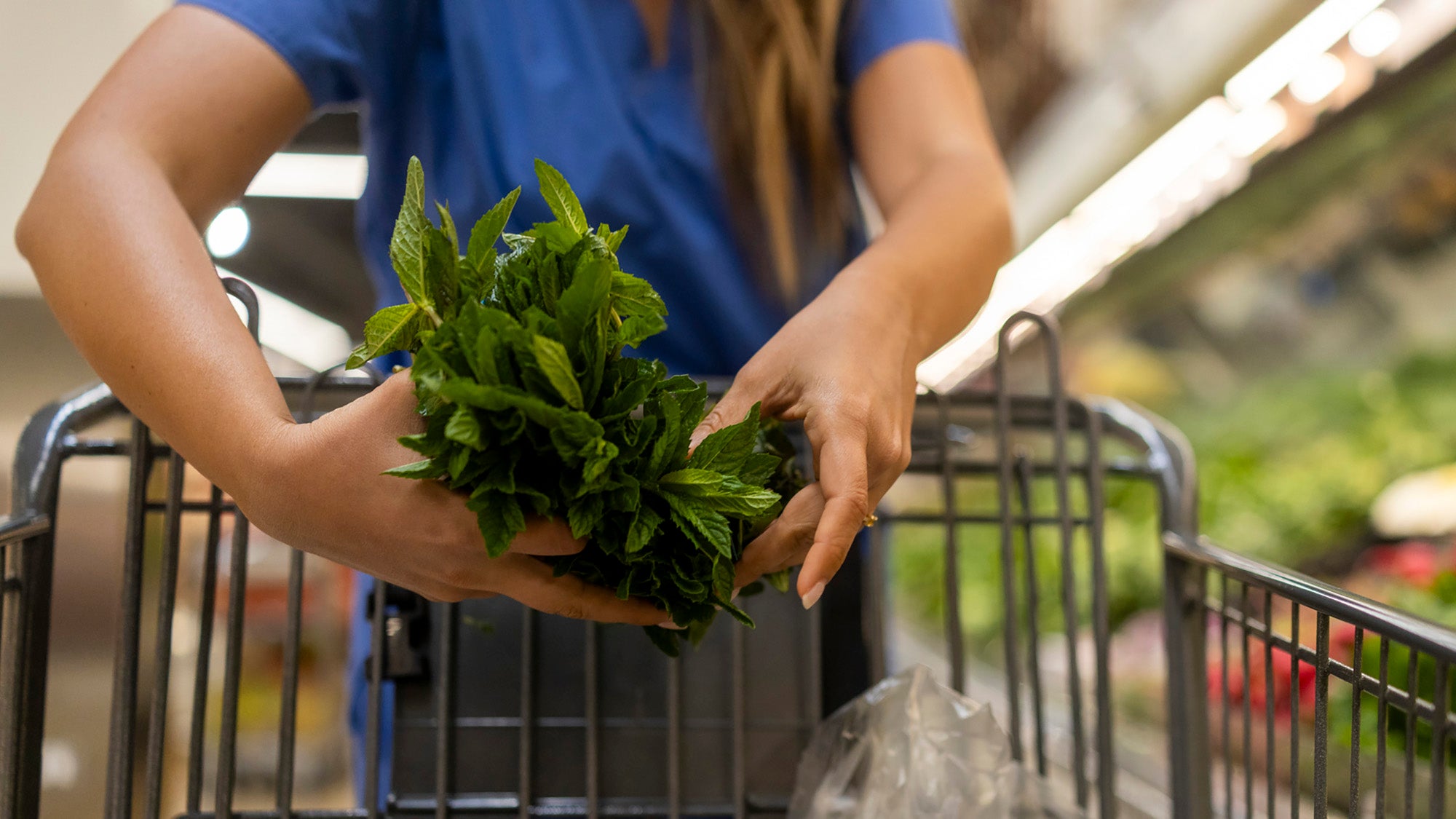Building the case against ultra-processed foods

The research described in this article was made possible in part by federal funding awarded to Harvard Chan School scientists in the interest of protecting and promoting health for all. The future of research like this is now in question due to the government’s actions to terminate large numbers of grants and contracts and freeze funding for scientific inquiry and innovation across Harvard University.
Kenny Mendoza, PhD ’25, helped document the health risks of ultra-processed foods. Now he wants to understand the biological reasons why they are bad for us.
Last fall, Kenny Mendoza led a study linking ultra-processed foods (UPFs)—particularly sweetened drinks and processed meats—to increased heart health risks. The findings garnered widespread media coverage and the attention of the scientific community and policymakers around the world. For Mendoza, a nutrition epidemiologist who’ll be graduating with a PhD in May, it was exciting to see his work make a splash. It’s the start of what he hopes will be a career translating nutrition research findings into tangible public health change.
“It’s extremely important to me that our research got attention,” said Mendoza, who has been working as a postdoctoral research fellow in the Harvard T.H. Chan School of Public Health Department of Nutrition since completing the requirements for his degree (which is awarded through Harvard Kenneth C. Griffin School of Arts and Sciences) in August. “My purpose as a scientist is not just to publish papers, but to ensure that my findings reach the general public and the right stakeholders.”
Mendoza’s study, which analyzed decades of data from more than 200,000 U.S. health professionals—and included more than one million adults when incorporating data from additional populations—was one of the largest analyses of heart health and the consumption of UPFs. He is also currently working on epidemiological studies linking UPFs to other health problems, including cardiometabolic disorders and neurodegenerative conditions.
Support Harvard Chan School
Every gift contributes to our mission of building a world where everyone can thrive. To learn more about how you can support the School, please contact giving@hsph.harvard.edu.
UPFs are a complex food category to study, including a wide range of products from hot dogs to whole grain bread. Some products such as sodas are undeniably unhealthy, while others may contain beneficial components like fiber or calcium. In follow-up opinion pieces, Mendoza and colleagues have offered policy guidance around reducing UPF consumption, which has potential benefits for cardiometabolic health and type 2 diabetes prevention. Given that these foods make up about 60% of the typical American diet and 73% of the U.S. food supply, getting rid of them completely is not feasible. However, they note that some types of UPFs such as yogurts and breakfast cereals could be tweaked into healthier formulations.
In future studies, Mendoza hopes to delve into the biological mechanisms behind UPFs’ detrimental effects. He aims to study how reducing certain types of UPFs may trigger beneficial changes in blood metabolites. These molecules—end products of what our bodies metabolize—not only serve as “foodprints” of our diet but also play active roles in disease processes. “If we can reliably identify which blood metabolites change in response to UPF consumption, and how these changes predict future disease, we could apply this strategy in clinical settings to identify high-risk individuals and intervene early—potentially years before the onset of type 2 diabetes,” he said.
Connecting illness to food systems
Mendoza has long been intrigued by the ways that food and food systems can impact health. He traces the origin of this interest to a significant change that came to his hometown San Luis Potosi, in north central Mexico, some 30 years ago. It’s a region rich in culinary tradition, and he recalls that his family and neighbors used to eat healthy diets. But following passage of the North American Free Trade Agreement, sugary sodas and fast-food burgers became popular in Mexico. His grandmother’s diet suffered, and she ultimately passed away from complications from type 2 diabetes.
“I connected her illness to the changes in our food system. I felt that it wasn’t completely her fault, that this wasn’t just about personal choices,” he said. “So, I wanted to understand why something as basic as food, which is supposed to keep us healthy, made her and others around us sick. That question still drives my work today.”
The importance of mentors
Mendoza earned bachelor’s and master’s degrees in nutritional science at the Mexican National Institute of Public Health (INSP) and worked there as a researcher after graduation. During his time at INSP, Mendoza worked on research projects with pioneering Mexican nutrition scientists Simón Barquera and Juan Rivera and continues to be mentored by them. Both are renowned for their leadership in the development of anti-obesity food policies in Mexico—including mandatory warning labels on unhealthy foods and a tax on sugary drinks—as well as for their research in addressing undernutrition in the country. Earlier this year, he was invited to return to INSP to deliver a keynote address on UPFs and speak on a panel with Barquera and Rivera, along with American nutritionist Marion Nestle, three of his sources of professional inspiration.
Over the past five years at Harvard Chan School, Mendoza has had the opportunity to work with other researchers who inspired him to enter the field, including Walter Willett and Frank Hu. “They developed many of the methods and research approaches widely used in nutritional epidemiology today,” he said. “I wanted to learn directly from the leading experts in the field.”
In addition to the deep subject matter knowledge he gained at the School, he said that one of the most important lessons he learned here was the value of high-quality mentorship in shaping future leaders. “My primary mentors, particularly Josiemer Mattei, were always very responsive. They provided connections and opportunities that allowed me to develop my own ideas and build a strong foundation to become an independent scientist.”
Mendoza plans to continue laying that foundation during the final year-and-a-half of his postdoctoral fellowship. Building on his previous research, he hopes to study the biological mechanisms behind the link between UPFs and increased type 2 diabetes risk and to pilot an intervention to test the metabolic health effects of reducing consumption of certain UPFs in young adults.
Mattei said of Mendoza, “Kenny is a well-rounded scholar who demonstrates many abilities, from developing pressing and meaningful research projects, to applying meticulous research skills, to communicating results to diverse audiences in a clear way. He takes initiative and charge in every task he does, which has nurtured his growth as a public health researcher.” She added, “Kenny’s level of professionalism, gratitude, and righteousness are unparalleled. I feel fortunate to have the opportunity of knowing and working with him, and I am certain that he will lead remarkable projects to advance population health.”
Long term, Mendoza hopes to build a career as a public health nutrition epidemiologist and ultimately become a professor. Most importantly, he said. “I want to continue producing research that benefits society.”
Quick hits

Favorite ways to unwind: My magic recipe is very basic—exercise at least five times per week; a good movie each week; and meditation.
Something people might not know about me: I finished my PhD around the same time my mom graduated from college with a degree in geological engineering. She had to leave college at age 20, but nearly 40 years later, she decided to go back and start over again. She’s 61 now and applying to master’s degree programs. Her achievements mean a lot to me, because I wouldn’t be studying here without the sacrifices she made.
Another thing—I learned to speak English in just eight months. When I was 29, the year before I started at Harvard, I came to the U.S. on a Fulbright scholarship. Through that program, I took an intensive course in Arkansas. It really paid off!
A book and some movies I like to recommend: The Four Agreements: A Practical Guide to Personal Freedom, by Don Miguel Ruiz. It’s a very helpful book about learning to navigate daily struggles.
For movies, Interstellar, Arrival, and Contact. They all feature traveling across time and space in very different ways.


